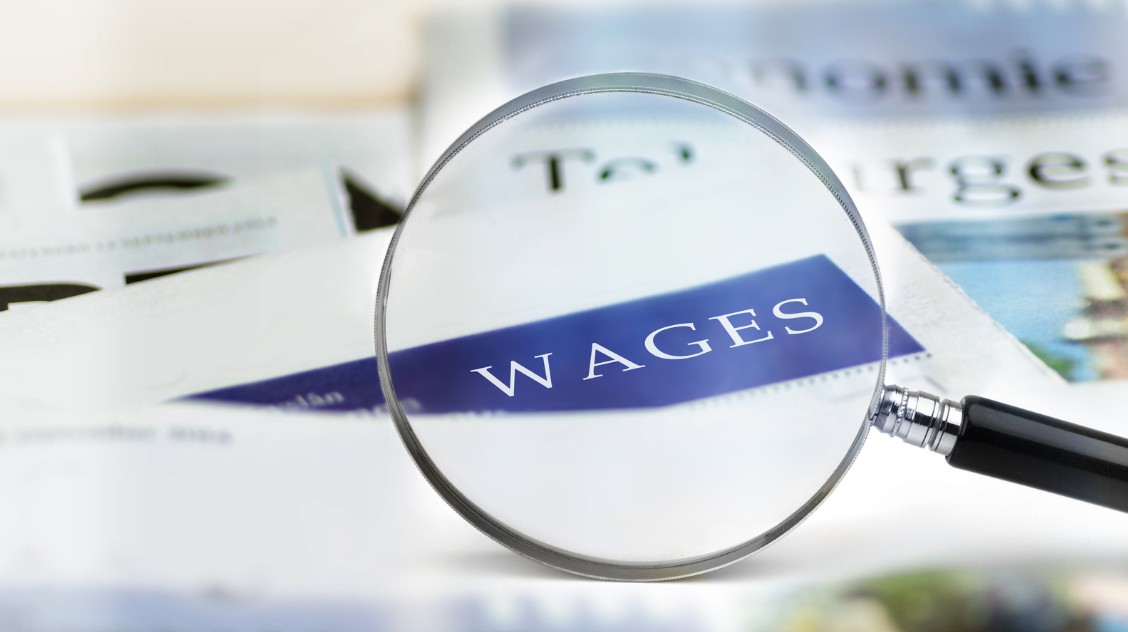Table of Contents
ToggleEnsuring your wages are accurate is essential for managing your finances effectively. In the UK, the HMRC (Her Majesty’s Revenue and Customs) plays a key role in helping employees track their income, tax deductions, and National Insurance contributions.
With tools like the PAYE system and the HMRC personal tax account, verifying your wage details has become more accessible than ever. However, understanding how these systems work and how to use them can sometimes feel overwhelming.
This guide breaks down everything you need to know about checking your wages on HMRC, identifying potential discrepancies, and ensuring your employer complies with PAYE regulations.
By the end of this blog, you’ll have all the tools you need to manage your wages with confidence.
What Is the HMRC PAYE System?

The PAYE (Pay As You Earn) system is a method used by employers to calculate and deduct income tax and National Insurance contributions from an employee’s wages before they’re paid. This ensures that employees pay the right amount of tax at the right time.
The PAYE system is vital for maintaining accurate tax records and prevents the need for employees to calculate their own tax liabilities.
Employers submit these deductions to HMRC, where they are recorded against the employee’s personal tax account. This process helps ensure the tax system operates smoothly.
PAYE also enables HMRC to track an individual’s total income and tax contributions over the tax year. This system is mandatory for most employers in the UK and is closely monitored to ensure compliance.
Understanding PAYE is the first step in taking control of your financial health and ensuring your wages are accurate.
How Does the PAYE System Work?
The PAYE system operates through employer submissions, which are recorded in real-time by HMRC. When your employer calculates your wages, they deduct income tax and National Insurance based on your tax code and earnings. These deductions are submitted to HMRC using Real Time Information (RTI).
RTI allows HMRC to track your earnings and contributions almost immediately after they are processed. This system ensures that your income and deductions are up to date and helps identify any issues early.
Employers are required to submit these details every time they process payroll, making it easier for HMRC to maintain accurate records.
As an employee, understanding how PAYE works is crucial. It helps you recognize any discrepancies in your payslip or tax deductions. If there are errors in your wages, RTI ensures that these can be identified quickly, minimizing the risk of long-term financial issues.
How to Check My Wages on HMRC?

Checking your wages on HMRC is simple and can be done through your personal tax account. This online platform allows employees to view their tax records, check income details, and track National Insurance contributions.
To check your wages:
- Visit the HMRC website and log into your personal tax account.
- If you don’t already have an account, you can create one by providing details such as your National Insurance number and personal information.
- Once logged in, navigate to the income section to view details about your wages and tax deductions.
The HMRC personal tax account is a powerful tool for employees. It provides transparency and allows you to monitor your financial records.
Whether you’re checking recent wages or reviewing historical records, the platform ensures you have all the information you need at your fingertips.
What Information Do I Need to Access My HMRC Account?
To access your HMRC account, you’ll need specific information and documentation. These include your National Insurance number, tax code, and login credentials for the HMRC online portal.
When creating an account, be prepared to verify your identity by providing:
- Personal details, including your name, date of birth, and address.
- Recent payslips or P60s to confirm your income history.
- A government gateway ID, which you can create during the registration process.
Ensuring that you have all the necessary information ready can save time and make the process smoother. It’s important to keep your login credentials secure to protect your personal data. If you ever lose access, HMRC provides options for account recovery, ensuring you can quickly regain access to your tax records.
How Do You Identify Errors in Your Wages Through HMRC?

Identifying errors in your wages is crucial to maintaining financial accuracy. Start by comparing your payslip with the information available in your HMRC personal tax account. Look for discrepancies such as incorrect tax codes, missing income, or unexpected deductions.
Common errors include:
- Incorrect tax codes resulting in overpayment or underpayment of taxes.
- National Insurance contributions not being recorded accurately.
- Missing employer submissions in Real Time Information (RTI).
If you notice any discrepancies, reach out to your employer to verify the information they’ve submitted to HMRC. If the issue isn’t resolved, you can contact HMRC directly for assistance. Keeping records of your payslips and correspondence with your employer can help support your case.
What Are Tax Codes, and Why Are They Important for Wage Accuracy?
Tax codes determine how much tax is deducted from your wages. They are assigned by HMRC based on your income, benefits, and tax-free allowances. A typical tax code for most employees is 1257L, which represents the standard personal allowance.
An incorrect tax code can lead to significant financial issues, such as overpaying or underpaying taxes. This is why it’s essential to check your tax code regularly. If you believe your tax code is wrong, you can contact HMRC to request a review.
Understanding your tax code empowers you to identify errors and take corrective action. It also ensures that you pay the right amount of tax, avoiding any surprises at the end of the financial year.
How Can You Ensure Your Employer Is Submitting Accurate Information?

Employers play a crucial role in ensuring your wages and tax deductions are accurate. They are responsible for submitting this information to HMRC through the PAYE system, which records tax and National Insurance contributions.
As an employee, you can take proactive steps to verify that your employer complies with PAYE regulations and submits correct information.
Steps to Confirm Employer Accuracy:
- Review Payslips: Regularly examine your payslips to ensure they match your actual income and deductions.
- Cross-Check HMRC Records: Use your personal tax account on HMRC’s website to confirm the details submitted by your employer.
- Report Discrepancies Quickly: If you identify errors, notify your employer immediately with evidence from your payslips and HMRC account.
If you suspect that your employer isn’t compliant, you can escalate the issue to HMRC. Reports can be made anonymously if you’re concerned about confidentiality.
Taking these steps helps safeguard your financial interests and ensures that tax submissions are accurate. Accurate employer submissions also contribute to the integrity of the PAYE system, which benefits all employees.
What Steps Should You Take If You Find a Wage Discrepancy?
A wage discrepancy can arise for various reasons, such as incorrect tax codes, employer miscalculations, or missing information in HMRC’s records. Identifying and addressing these issues promptly can help minimize their impact on your finances.
Steps to Resolve a Wage Discrepancy:
- Discuss with Your Employer: Start by raising the issue with your employer. Provide clear evidence, such as payslips and screenshots from your HMRC account, to highlight the discrepancy.
- Keep Detailed Records: Document all communications, including emails and phone calls, regarding the issue. This ensures you have a clear record if further action is needed.
- Contact HMRC: If your employer cannot resolve the issue, escalate the matter to HMRC. They can investigate discrepancies and guide you on the next steps.
In more complex cases, HMRC may contact your employer directly to resolve the matter. Being proactive and organized in addressing discrepancies not only protects your financial interests but also helps maintain accurate tax records for future reference.
How Do I Stay Updated on Changes to the PAYE and HMRC Services?

Keeping up with changes to the PAYE system and HMRC services is essential for employees who want to ensure wage accuracy and compliance.
The UK tax landscape can evolve, and staying informed allows you to adjust to new regulations and avoid potential issues.
Tips to Stay Updated:
- Subscribe to HMRC Newsletters: Signing up for HMRC email updates provides you with the latest information on tax policies, deadlines, and changes to the PAYE system.
- Follow GOV.UK Announcements: Regularly visit the official GOV.UK website for updates on tax regulations and HMRC services.
- Consult a Tax Professional: If you have specific concerns or complex tax issues, working with a tax advisor can help you stay ahead of changes.
- Review Your Tax Records Regularly: By frequently checking your HMRC personal tax account, you can ensure that your wage and tax details reflect any updates to regulations.
Remaining informed not only helps you comply with regulations but also enables you to address any concerns proactively. Whether you’re an employee or self-employed, understanding PAYE and HMRC updates is vital for long-term financial planning.
Conclusion
Checking your wages through HMRC is crucial for managing your finances effectively. The PAYE system and personal tax account provide valuable tools to track your income, ensuring that all deductions are accurate.
Regularly monitoring your wages allows you to spot any discrepancies early, preventing potential errors in your tax records. Additionally, staying informed about your tax obligations helps you avoid surprises, ensuring you’re prepared for any upcoming payments.
By following the guidance in this blog, you can take control of your financial well-being, gain peace of mind, and protect yourself from unnecessary complications.
Taking these steps will not only help you stay compliant with tax laws but also enable you to make informed decisions about your finances moving forward.
FAQ
Can I check my wages if I’m self-employed?
Yes, self-employed individuals can use HMRC’s online services to track income and tax payments. This includes submitting self-assessment returns and reviewing tax contributions in their personal tax account.
When can you see your pay on HMRC?
Wage details are typically updated on HMRC’s system shortly after your employer submits Real Time Information (RTI). This means you can see your pay within days of your employer processing payroll.
Why is my tax code different from my colleague’s?
Tax codes vary based on individual circumstances, such as income level, benefits, or additional sources of income. These differences ensure that everyone’s tax deductions reflect their unique financial situation.
What should I do if I forgot my HMRC login details?
You can recover access by using HMRC’s online account recovery tool, which requires your email address and personal information. Alternatively, you can request assistance by contacting HMRC directly.
Can I use the HMRC app to check my wages?
Yes, the HMRC app allows you to view wage details, track tax payments, and manage personal tax accounts on your mobile device. It’s a convenient tool for on-the-go access to your financial records.
How long does it take for HMRC to resolve a wage discrepancy?
The resolution timeline depends on the complexity of the issue but typically ranges from a few weeks to a few months. HMRC will investigate and work with your employer to address the discrepancy.
What happens if my employer doesn’t comply with PAYE regulations?
HMRC can impose fines or penalties on employers who fail to comply with PAYE rules. They may also conduct audits to ensure compliance and protect employee rights.




